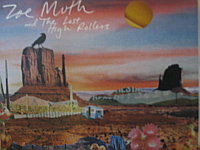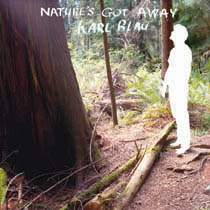Archive for the ‘IF interpreters’ Tag
Playing text games on the web
Of course purists will say, ‘playing text games in the web browser’. Only in the last year or two have web clients for muds and interactive fiction really started to gain momentum. As far as I can tell there hasn’t been a single source that attempts to note them all in one place, so that’s what I’ll try to do here. I’ll treat IF and muds separately (though in many ways the use case isn’t that different).
Interactive Fiction:
Traditionally IF in the browser used java applets or java web start. Zplet and Zag are java interpreters for the z-machine and glulx, respectively, the former using applets and the latter web start. ZMPP is in this category as well.
While web start launches a new window, applets typically run within the browser window. For example, Jetty, a TADS 2 applet, looks like this:
But you also can style applets how you like within the page; for example, contrast the above with this game:
Over the last few years it seems like JavaScript has been superseding Java for many web applications, but JavaScript has been around for IF for a while.
That’s from Aunts and Butlers, a 2006 JavaScript IFComp game.
Of special note is that the IFDB offers plugins so that it’ll start a game automatically (using an interpreter on your local computer). In essence this is like using Java web start, but with a much greater variety of game formats available.
The IFDB is not only the IF site where you can play games; the IFwiki has a good list of sites with various web-based interpreters.
A lesser known z-machine/glulx interpreter is iffy. It’s a CGI application, so it needs a web host to run from (rather than running completely on the player’s computer).
To be honest, though, all of this is a lead up for the new generation of IF interpreters, the standard bearer of which is the z-machine’s Parchment.
The Parchment development site links to instructions on how an author can get their game running. Because Parchment uses the Google app engine, all the author needs to do is put their game file on a publically accessible computer somewhere. Of course, an author can download the Parchment package to their own host as well.
Parchment isn’t the only representative of this new breed of interpreters. Quixe is a work in progress to emulate Parchment for glulx games (not yet released). Leaflet was developed by Jay Is Games for playing IF at their site. Another Flash z-code interpreter is Flaxo.
Other interpreters in this class include ifrotz, written in Ruby and C:
As well as SilverGlulxe, a glulx interpreter in Silverlight:
Of special note here is Guncho, essentially a mud server written with Inform 7. As a mud server, you can connect to it with mud clients. Guncho hosts a java client on its homepage, and these work a lot like the applet and web start interpreters shown above.
Well, since I’m talking about mud servers, that’s our bridge to jump over to…
MUDS:
Web clients for muds got their start with the java applets and java web start clients just mentioned. Since many of these were made for specific games, and were an attempt in some way to compete with native clients (such as mushclient, Zmud, and so on), they often look a little fancier than comparable IF interpreters.
Also due to the server-based nature of muds, they more often have employed socket-based Flash clients for players;
That’s a souped up example of Fmud, available for free (but not open source) from the developer. Fmud is not the only Flash mud client out there, but it’s simply harder to track down these clients (compared to IF clients), and Fmud is probably the most feature complete and polished one you’ll find. Of note is Soiled, a haXe client (which compiles to Flash).
Similarly with the progression in IF from Java to JavaScript, lately there has been a progression in muds from Java and Flash toward JavaScript clients. The jMud client is mostly JavaScript with a Flash socket connection. MUDBrowser is a JavaScript based subscription service to play muds in a web browser.
There are also generic telnet clients such as anyterm that use AJAX. I even found a Firefox plugin to do a similar thing (though I couldn’t get that to work for muds very well — I think it was designed for BBSes).
The PHuDBase client is a very new php-based platform (which currently requires Google Chrome to try out).
This represents my current knowledge of what’s available; with a little more digging I know I can find more clients particular to specific muds, but I don’t think they progress beyond the examples shown here. Any other references are of course very welcome.
What can I take away from the survey? Personally I like that IF interpreters are moving toward open web standard frameworks such as JavaScript, HTML and CSS.
It’ll be interesting to see how muds approach this; by their nature muds are a little more ‘custom’ than IF games, so using platforms such as Java and Flash may make more sense, but as web services begin to integrate more and more, mobile devices proliferate, and JavaScript gets faster and easier to use, it may be the case that muds would do better going a similar route as IF. On the other hand Java and Flash are not going away anytime soon, and they do offer a richer set of options for mud client developers out of the box.
One topic I haven’t touched here is hypertext, web-based gamebooks and CYOA, boutique systems such as Twine and Twee, or the range of digital poetry and literature ‘playable’ in the browser. There obviously is a lot more to talk about when talking about ‘playing text games on the web’, and something I’d like to get to in future posts. I feel that all of these genres could learn something from the technology that each presents itself with.
Zoom and Gargoyle on Ubuntu
After some screwing around I finally have Zoom and Gargoyle running on Ubuntu 6.06. All is not perfect, still getting some weird errors here and there. For example, in Gargoyle I can open Galatea, but not Deadline Enchanter (both .z5 files).
Zoom was pretty easy to build from source with Jam. Gargoyle is a little trickier, but I got a lot of help from RAIF and particularly Eric Forgeot with his helpful comments, and installed his package. Still can’t build Gargoyle but after grabbing some SDL libraries (libraries is what you call them, right?) I was good to go.
Of course, how silly it was of me to think I would have the nice Zoom Mac UI in Ubuntu! Maybe there’s some other option I can turn to for that.
 Comments (2)
Comments (2)















 Subscribe to Kooneiform
Subscribe to Kooneiform



